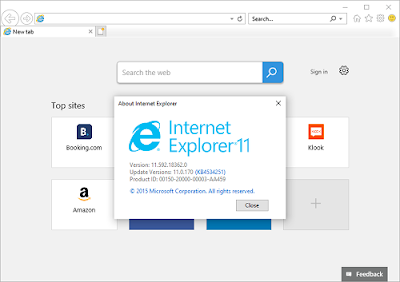More than 25 years after its first release, Microsoft has officially announced the end of support for its popular browser, Internet Explorer, next year.
Starting n June 15th, 2022, Microsoft will stop sending any security updates to Explorer 11 (the latest supported version of the browser) on all versions of Windows, which means that the company will not fix any vulnerability or security bug present or that may appear in Internet Explorer after this date, which will make users' personal information vulnerable to hacking, and they will have to switch to a modern browser such Firefox, Edge, or Google Chrome to continue browsing their favorite sites.
In any case, many users no longer use this browser, especially after the emergence of the Google Chrome browser and its sweep of the browser market by more than 67 (at the time of writing this article), but the termination of its support may make some business companies whose applications and websites are still completely dependent on This old browser, and you did not upgrade them to run on a newer browser such as Microsoft Edge, this may make it concerned about the fate of these sites and applications after the date on which support for Internet Explorer ends.
To address this, Microsoft advises business companies to use Internet Explorer mode on the Edge browser, which is a mode that enables legacy websites that are incompatible with modern web technologies to run in the new Microsoft browser based on Chromium, and the company promises to provide support for this mode on supported Windows versions until at least 2029.
However, it looks like Internet Explorer will leave Windows 10 soon before 2022, as the browser is no longer a pre-installed app in the latest Insider Preview build of OS version 21387, released last week, so the next Windows 10 feature update, version 21H2, might be expected to be released. Autumn without an ancient browser that has been accompanying all versions of Windows since 1995.

